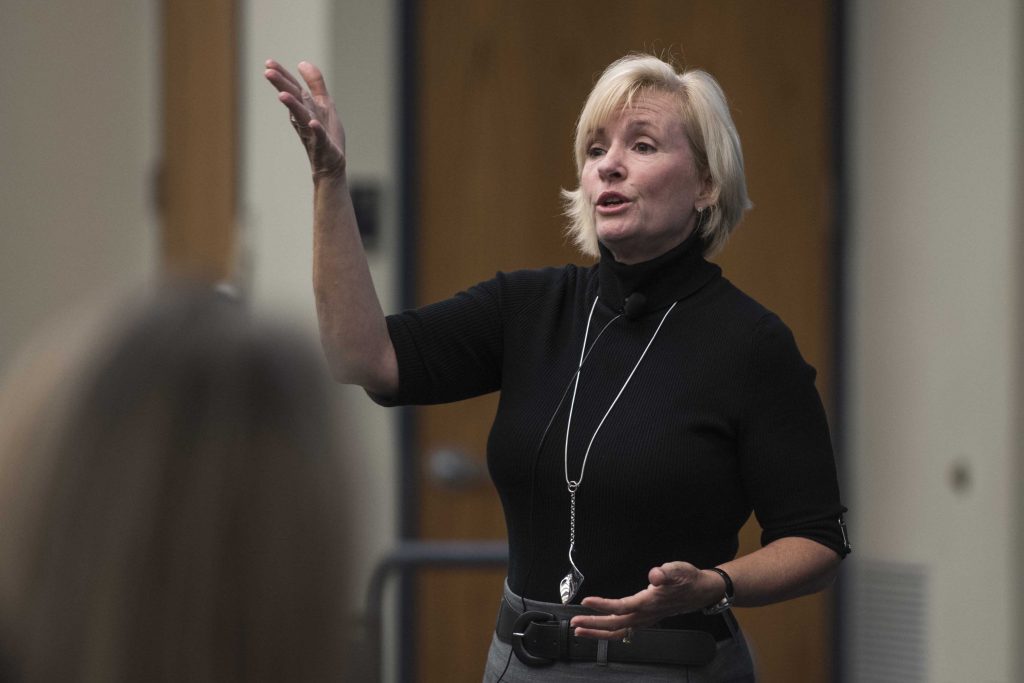Jennifer Thompson, co-author of New York Times bestseller Picking Cotton, is one of today’s most zealous advocates for conviction reform. However, this was not the vocation she had in mind for herself when she was a 22-year-old college student in Burlington, North Carolina.
“I had never wanted to be involved in wrongful conviction advocacy,” she told a packed audience at Boston College Law School attending her early October talk, “Healing the Harms of Wrongful Conviction.” The event honored Wrongful Conviction Day and was sponsored by the BC Innocence Program, headed by BC Law Professor Sharon Beckman.
Thompson’s story began in 1984. She was attending college at Elon University, and one night, she was raped at knifepoint in her apartment. Thompson said that as she was being raped, she tried desperately to remember the features of her assailant, knowing that it was her only chance of getting justice. She survived the assault, full of anger at the person who had stripped her of her dignity and life as she knew it. But she was also confident in her memory and that she would be able to hold that person accountable.
Thompson was later taken to the police station to identify her assailant. It was there that she mistakenly identified Ronald Cotton as her rapist in a photo and at a lineup. After making her choice, the police officers applauded her ability to pick the “right” man—the one whom they also believed to be the assailant, she said.
Cotton was convicted and served 11 years in prison, until 1995. That year, DNA evidence revealed that Thompson’s true assailant was Bobby Poole, then also an inmate at the prison where Cotton was held.
“I felt fear,” Thompson said as she explained what was going through her mind when she received news of Cotton’s exoneration. She was especially afraid of what Cotton might do to her and her family once he was released from prison, expecting him to be enraged.
But Thompson was told that Cotton knew she was sorry; he just needed to hear it from her. That’s when she decided to see him. When they finally met, she broke down; but Cotton assured her that he had forgiven her years before. His forgiveness, Thompson said, allowed her to heal.
Fast forward to today. Thompson considers Cotton one of her closest friends. Picking Cotton is their shared memoir. “We were both victims of the system,” she explained. Their bond stems from the realization that they have more in common than they had thought. “When the criminal justice system fails, it fails a lot of people,” she said, mentioning the harm that wrongful convictions do to families, and even jurors.
Acknowledging that the road to a successful criminal justice system is long, Thompson suggested practical steps and solutions for today. When asked by an audience member whether there remains any place for eyewitness identification, Thompson offered a qualified yes, saying that eyewitness identification has to be better studied and understood. She advocated for the “sequential double blind” method of making identifications, which eliminates the dangers of comparison and leading the witness to believe that a choice is required. She also believes that police officers should be trained to avoid contaminating a witness’s memory, since that contamination cannot be undone.
Thompson now dedicates her life to fighting for conviction reform. She founded Healing Justice, an organization that supports those who have been hurt by wrongful conviction.
Photograph by Yanyi Jiang, MTS, BC


